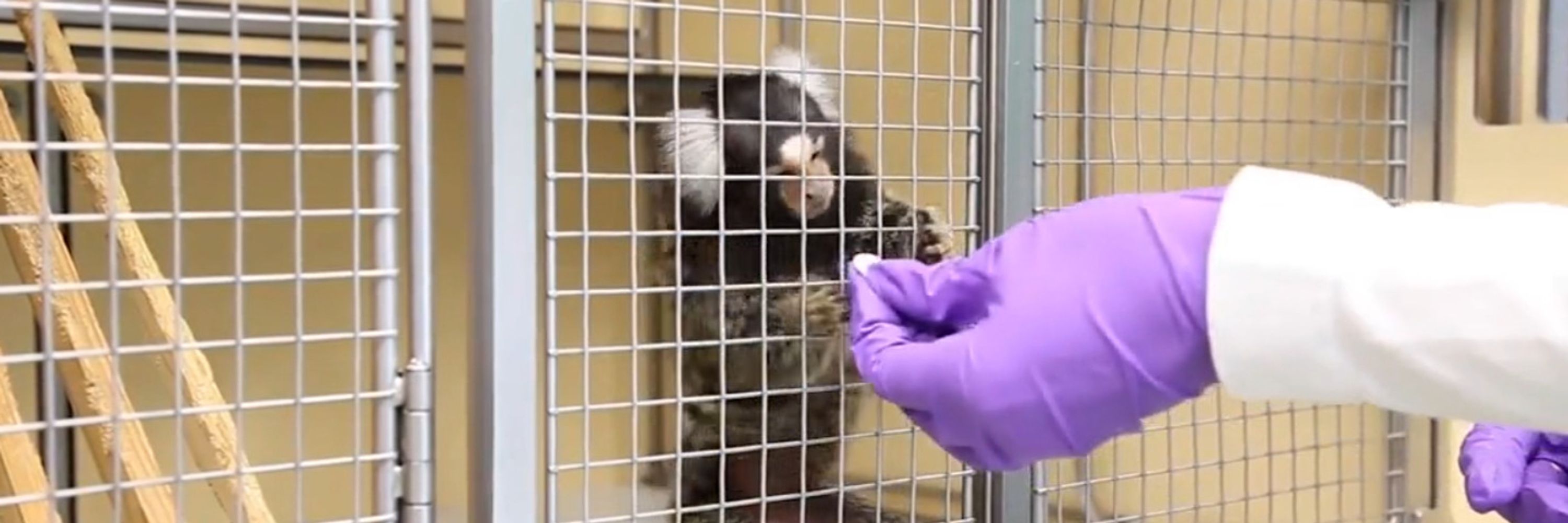
But let's keep in mind that research in NHPs is only ethical and legal when it cannot be done in rodents; therefore we must highlight this indispensability.
But let's keep in mind that research in NHPs is only ethical and legal when it cannot be done in rodents; therefore we must highlight this indispensability.
Depending on the species, their intelligence is on par with pigs, cats, dogs, many birds, etc. Maybe even rats. And nowhere near humans (except apes).
What is crucial for neuroscience is their evolutionary and anatomical proximity.
Depending on the species, their intelligence is on par with pigs, cats, dogs, many birds, etc. Maybe even rats. And nowhere near humans (except apes).
What is crucial for neuroscience is their evolutionary and anatomical proximity.
What truly matters is intelligence embedded in a human-like body, sensors and effectors, and brain structure.
That is what shapes how brains work.
What truly matters is intelligence embedded in a human-like body, sensors and effectors, and brain structure.
That is what shapes how brains work.
It can grasp food with its forepaws, but it lacks the fine motor control of a monkey: their corticospinal pathways are fundamentally different.
And that's the difference.
It can grasp food with its forepaws, but it lacks the fine motor control of a monkey: their corticospinal pathways are fundamentally different.
And that's the difference.
Are marmosets perhaps “twice as smart”? Would that make rats “almost as good as marmosets”?
In my view, the fundamental distinction is not their degree of intelligence, but their body.
Are marmosets perhaps “twice as smart”? Would that make rats “almost as good as marmosets”?
In my view, the fundamental distinction is not their degree of intelligence, but their body.
(Btw, for context: I lead a lab working with both, and I have roughly ten years of experience with macaques.)
Marmosets are much less intelligent than macaques and, from what I hear, probably less intelligent than pigs.
(Btw, for context: I lead a lab working with both, and I have roughly ten years of experience with macaques.)
Marmosets are much less intelligent than macaques and, from what I hear, probably less intelligent than pigs.
But let's be clear: macaque cognition remains far from human intelligence—no abstract reasoning, language, or symbolic thought.
Even a profoundly impaired human is still far, far smarter than a macaque.
But let's be clear: macaque cognition remains far from human intelligence—no abstract reasoning, language, or symbolic thought.
Even a profoundly impaired human is still far, far smarter than a macaque.
And the obligation to replace them with species less apt to suffer, e.g. rodents, when possible.
And the obligation to replace them with species less apt to suffer, e.g. rodents, when possible.
In the case of macaques, I would honestly place them somewhere on par with cats and dogs. All of these species receive special ethical consideration because of their cognitive capacities.
In the case of macaques, I would honestly place them somewhere on par with cats and dogs. All of these species receive special ethical consideration because of their cognitive capacities.
This is precisely why experiments on apes are now essentially banned.
This is precisely why experiments on apes are now essentially banned.
First, there is indeed a dilemma: to understand the human brain, we need to study animals that are close to humans. The more human-relevant, the greater the ethical implications.
First, there is indeed a dilemma: to understand the human brain, we need to study animals that are close to humans. The more human-relevant, the greater the ethical implications.
That said, my own expertise is on the vestibular system and navigation, and I think others have answered this topic better than I can 😁
That said, my own expertise is on the vestibular system and navigation, and I think others have answered this topic better than I can 😁
academic.oup.com/cercor/artic...

academic.oup.com/cercor/artic...
Which rodents don't have - rats visual acuity is 1/30 to 1/60 of human's.
Which rodents don't have - rats visual acuity is 1/30 to 1/60 of human's.
For me, this study of Marmoset hippocampus nails it. Primates don't have 'place cells' like rodents do, instead hippocampal cells encode where the monkeys look.
www.nature.com/articles/s41...

For me, this study of Marmoset hippocampus nails it. Primates don't have 'place cells' like rodents do, instead hippocampal cells encode where the monkeys look.
www.nature.com/articles/s41...
Ok, a bit more seriously, here is one example where Marmosets (and primates in general) vastly outperform rats at object recognition, especially when it involves mental rotation:
www.sciencedirect.com/science/arti...

Ok, a bit more seriously, here is one example where Marmosets (and primates in general) vastly outperform rats at object recognition, especially when it involves mental rotation:
www.sciencedirect.com/science/arti...
And I might even see the day when brain electrodes are completely safe, and I can record from healthy volunteers.
But we’re not there yet (and it will take some 🐵s to get there).
And I might even see the day when brain electrodes are completely safe, and I can record from healthy volunteers.
But we’re not there yet (and it will take some 🐵s to get there).

